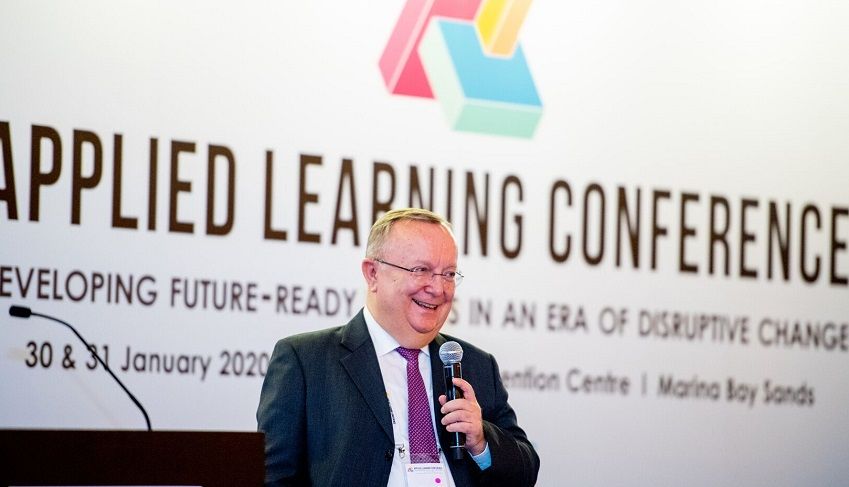How Germany’s 600-year-old method will change the future of education
By Singapore Institute of Technology
Professor Dr Georg Nagler, Rector of DHBW Mannheim, shares how dual studies can prepare graduates for workplace disruption and transform the employer-employee relationship.

Eventually, the craftsmen saw the need to teach their apprentices the theory behind their skills as well. “There was the need for not only practical experiences but also theoretical background for doing a good job,” explains Professor Dr Georg Nagler, Rector of Duale Hochschule Baden-Württemberg Mannheim (DHBW Mannheim) in Germany.
Universities in modern times later adopted this teaching method called “dual studies approach”, combining practical and theoretical knowledge in education. This approach, in which students spend half of their time in companies and the other half in classes, will be the way forward, reckons Dr Nagler. Having made an appearance recently at Singapore Institute of Technology’s Applied Learning Conference as a distinguished guest speaker, he shares with Govinsider how combining work and study can meet future job demands.
Coping with disruption
Practical relevance in education is crucial for students to be able to cope with the pace of change today. Dr Nagler recalls the first time his father brought home a transistor radio 50 years ago. “It had this size,” he says, holding up his hands about a palm’s width apart. “And now in this smartphone,” he says, pointing to an iPhone, “you have 10 million of those transistors.”
Only the industry would have the capacity to prepare workers for such changes. “If our universities would have tried to be totally responsible for adapting all people to these new technologies, they would have failed,” says Dr Nagler. “It was, in most cases, experience and practical learning that brought the progress,” he explains.
Beyond equipping students with the technical skills they need for jobs, work attachments also allow students to learn soft skills, such as punctuality, precision and teamwork. “You can never expect that you will have heavenly circumstances in your company,” says Dr Nagler. “To learn to cope with [tough circumstances], and to get advised by expert colleagues who can show you how to cope with it, is very important.”
How to train a future-ready employee
Professors first need to be aware of the challenges facing young employees when they step into the workforce. Dr Nagler is a strong proponent of sending teaching staff into the workforce, so they can gain industry experience. “This way, they can show their industrial authority when they teach case studies,” he says.
This idea has been missing in education for a long time, says Dr Nagler. “[The old idea that] you are only a good academic teacher if you're a good researcher - that's totally wrong. You can be a good teacher if you have good practical experience, then you can teach right.”
Primary schools can also do more to expose students to future career paths and give students a head start in pursuing skills they are interested in. “Often, we see young people who want to make computer games, but when they see that they have to programme algorithms, which they have never heard of previously, they get discouraged from the first moment,” says Dr Nagler.
He recommends that primary schools adapt their syllabus to expose students to basic IT knowledge in their younger years, so they get a chance to discover their passion early. “When you have never heard about IT, how can you choose an IT profession?” he asks.
Building a sustainable and inclusive workplace
Dual studies programmes - also known as applied learning programmes - can also help companies become more sustainable and inclusive in their hiring practices. These extended student placements encourage companies to think about the long term needs of both the company and the employee, since those they train could become future employees.
This often translates to more flexible and inclusive policies, so that these employees would stay with the company in the long run. When companies show that they are willing to consider the needs of their employees, it “creates a basis for long-lasting loyalty to the company”, explains Dr Nagler.
For instance, studies have shown that women who go on maternity leave with a guaranteed position upon their return are more likely to “stay with the company even in times of crisis”. This sustainable approach to hiring “is always better than the alternative where you gain short and quick wins, but risk long-term losses,” says Dr Nagler.
The dual studies programme itself is an answer to a practical demand for better-prepared employees. Just as the theory of the craftsmen was born from a practical need to train apprentices better in the medieval times, universities today have to address the real-world demands and prepare students for jobs. This, Dr Nagler believes, will be the future of education.